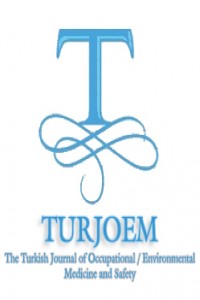Abstract
The National
Strategy Document on Drugs and Emergency Action Plan started with the
contributions of all the relevant institutions within the year of 2014 was
prepared and after that in accordance with the Prime Ministry Notice entitled
Fight Against Drugs published within this scope, the committees for Fight
Against Drugs were established (under the presidency of Deputy Prime Minister
and with the help of Ministry of Health, Ministry of Justice, Ministry of Labor
and Social Security, Ministry of Family and Social Policies, Ministry of
Interior, Ministry of Customs and Trade, Ministry of Youth and Sports and
Ministry of National Education), 1. Fight Against Drugs Council composed of 15
workshops was carried out, and the final reports of the Council was evaluated
and the works of National Strategy Document on Drugs and Emergency Action Plan
were shaped (National Strategy Document on Fight Against Drugs, 2015).
“National Strategy Document on Fight Against Drugs” and “Emergency Action Plan
on Fight Against Drugs”, the preparatory works of which were started in 2014,
were discussed and approved in the meeting of the High Council of Fight Against
Drugs dated 20.01.2015, and brought into force.
Drug Prevalance
According to the
TUBİM GPS Survey, lifetime usage frequency of use of cannabis as the most
commonly used illegal substance in Turkey in the 15-64 age group, is found as 0.7%.
While the usage in the last 12 months has been identified as % 0.3, it has been
identified as 0.2% for the last month.
According to the TUBİM GPS Survey, lifetime usage frequency of
stimulants use is in Turkey in the 15-64 age group, is found as 0.1%.
According to the
TUBİM GPS Survey, lifetime usage frequency of cannabis use in Turkey in the
15-64 age group, is found as 0.02%, and in the age group of 15-34 as 0,05%.
Since the first synthetic cannabinoids was captured in 2011, there has been an
increase both in the amount captured and in the number of applications for
treatment. The synthetic cannabinoid users that ranked in the second highest
among the persons applying for treatment according to the application intensity
compose of 15,81% of the treatment applicants in 2014. Furthermore, it is observed that the
synthetic cannabinoid users applied for treatment (1681) in 2014 is 3,30 times
higher than the previous year.
Prevention
Fights against
use of drugs have aspects within the scope of the responsibility of diverse
institutions. The prevention activities
carried out in Turkey basically depends on the provision of the Constitution of
the Republic of Turkey stipulating that “The State takes the necessary measures
in order to protect the youth from addiction to alcohol, drugs, criminality,
gambling and similar bad habits and from illiteracy.
It is observed that most of the prevention
activities are seminars, theatres, banner-brochure works or media programs that
explain the damages caused by the drugs and the consequences of drug use. The
preventive activities basically target the youngsters between the age of 15-24,
the age when most drug uses start, as well as families, teachers, public
officials and non-governmental organizations.
Treatment
The number of
treatment centres which was 26 in 2013 reached 32 in 2014.
A standard form was
used for treatment data collection. These forms were completed by data entry
officers at the treatment centers according to the patients’ medical records.
Duplicate cases were removed, and 7,265 patients were recorded in 2013. Out of
7,265 patients, 2,707 individuals (37.26%) reported that they used drugs by
means of injection at least once in their lives. 2,204 people (30.34%) stated
that they injected drugs within the last 30 days. Nearly all those who reported
intravenous drug use within the last 30 days (2,201 people) preferred opiates.
One person with benzodiazepine use reported injection within the last 30 days
before the treatment. The most prevalent substance among opiates was heroin
(2,155 people).
Drug Market and
Crime
In accordance
with the relevant articles of the Turkish Penal Code regulating drug offenses;
Cannabis drug offenses remains in the first place among the other types of
substances because of investigation by the law enforcement bodies of most
cannabis on drug charges.
The project named
as “Narkotim” and motorized groups has started to implement on 11 provinces in
order to fight against dealers more affectively in Turkey. The main aim of
project is to protect the people from dealers and prevent drug reaching to
public. In consequence of pilot application, successful results have been obtained
in a short time.
In 2013, 98,933 drug-related cases occurred
throughout Turkey, and 148,121 suspects were arrested in relation to these
cases.
When the crime-related distribution of all
148,121 suspects arrested in Turkey in 2013 is analyzed, it is clear that
112,505 suspects (75.95%) were arrested for the purchase/acceptance/possession
of drugs with the intent to use (article 191 of TPC); 31,183 suspects (21.05%)
for the production and trade of drugs (Article 188 of the TPC); five suspects
for facilitating the use of drugs (Article 190 of the TPC); 4,407 suspects
(2.98%) for the violation of the Law on the Supervision of Drugs No.2313; and
21 suspects (0.01%) for violation of the Law on Drugs No.3298.
References
- Mustafa Necmi İLHAN Gazi University Faculty of Medicine, Dept. of Public Health
Abstract
References
- Mustafa Necmi İLHAN Gazi University Faculty of Medicine, Dept. of Public Health
Details
| Journal Section | Articles |
|---|---|
| Authors | |
| Publication Date | February 16, 2017 |
| Published in Issue | Year 2017 Volume: Volume 2 Issue: İssue 1 (1) - 2.İnternational Congress Of Forensic Toxicology |


